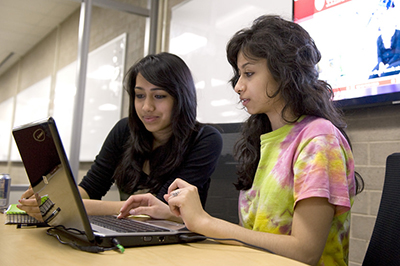NECESSITY MAY BE THE MOTHER of invention, but in the case of 14-year-old Katherine Wu, it was her father who most needed her creation. Wu says her “Driver’s Companion” tech device was inspired by family trips on which her mother would talk to her father on their long drives home from vacation to keep him awake and alert.
“Drowsy driving causes more than 100,000 U.S. crashes annually,” explained Wu in her video submission for the 2014 Discovery Education 3M Young Scientist Challenge (for which she was a finalist). “There are not many devices that help target drowsy driving. Of the few, many have flaws, with most of them being reactive, not proactive. Most drowsy driving crashes are caused by vehicles with only one person. I created a device to act like a companion for the driver.”
The invention works by reading eye blinks and EEG waves via a mobile headset to determine a driver’s level of drowsiness. The collected data is transmitted to a small device on the dashboard that in turn alerts the driver with audio (music turns to calm beeps then verbal warning messages) and visual cues (yellow lights turn to red, then both colors) if the person appears too drowsy to be driving.
“One scientific principle is that people blink more when they are tired,” explains Wu. “The different EEG waves can reflect drowsiness. Alpha waves occur when the person is drowsy or relaxed. Beta occur when the person is awake. A higher alpha-beta ratio shows a higher ratio of drowsiness.”
Wu, who conducted research by testing it on students at the local middle school, says the device is small, inexpensive and easy to use. “I hope, with this device, drowsy driving will not occur as often, and many lives will be saved.”
Although Wu says the Driver’s Companion is her favorite invention to date, there are others in the works, including one that uses data collected by the government to predict obesity at a younger age, based on things like changes in BMI. Of course, since Wu knows she wants to major in a STEM (Science, Technology, Engineering, Mathematics) field in college, there will no doubt be many more inventions to come.
Her advice to other students? Choose a project you’re interested in so you’ll be willing to spend more time on it and enjoy working on it more. As for obstacles: “Just continue working hard because [you’ll] overcome it.”



